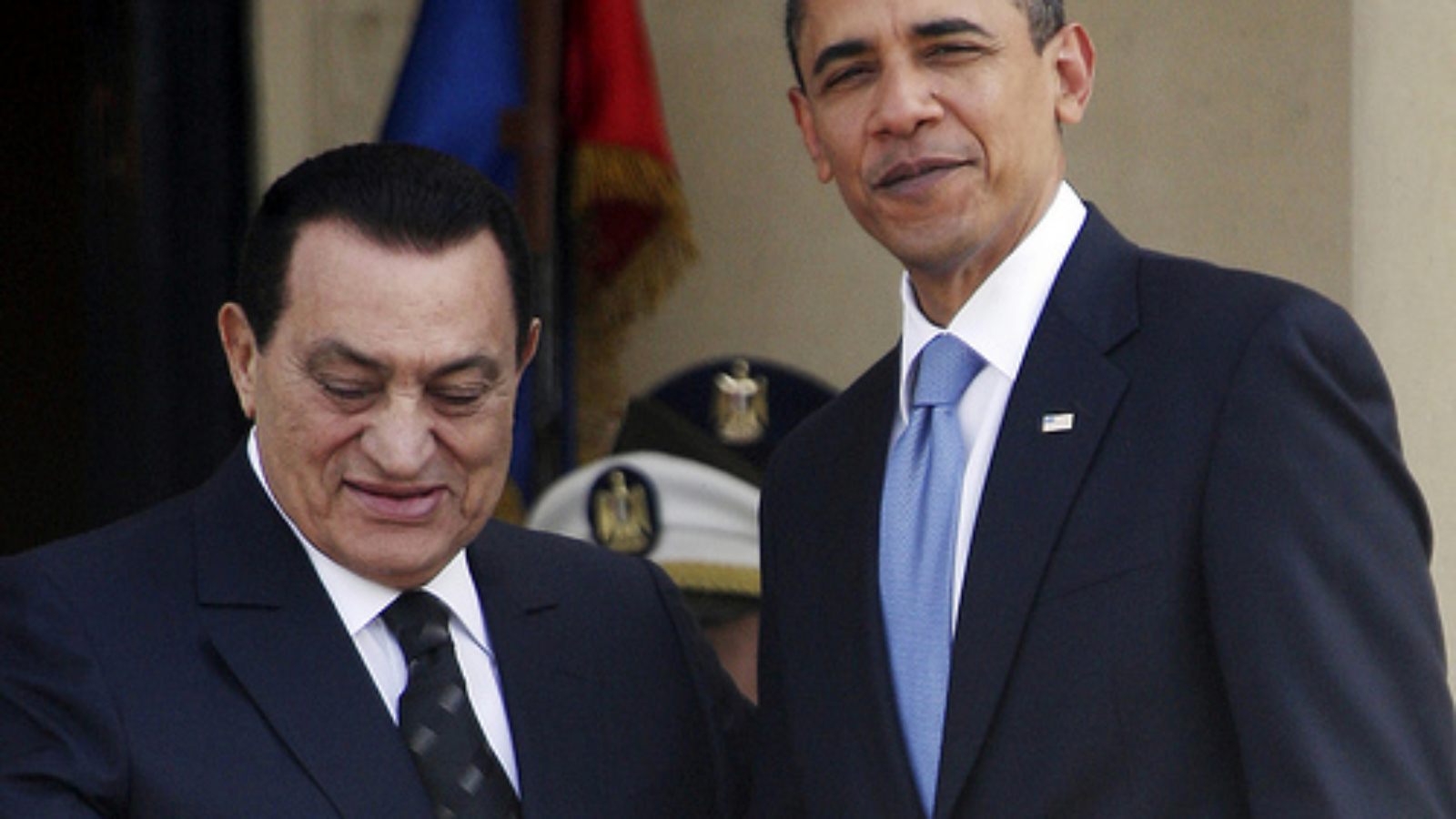By Gary Sick
Revolutions create a dilemma for outsiders. When people demand change, they don’t want to wait forever to see it. They want it now.
But the reason they are having a revolution is often because they have been denied the right to any form of political change for a very long time. In the case of Egypt it has been thirty years of stultifying status quo. Tunisia was a bit less. Some countries, like Syria or Yemen, have had no significant change in living memory.
Why? Well, because the ruling elite were determined to keep things exactly as they were. To that end, they prohibited any display of political activism. No political parties. No challenges to existing political institutions. No open questioning of authority. Anyone who failed to understand these simple rules was arrested, often tortured, sometimes killed.
Eventually the people decide they have had enough of this – in Cairo, they cry "Kifaya! Enough!" – and they face down the police thugs at risk of their
lives. Astonishingly, they succeed. Then what?
At a moment’s notice, they are expected to reinvent themselves – from the oppressed political have-nots of a sclerotic and indifferent regime to the leaders of a new political world. They asked for change. They got it. From there on, the problem is deceptively simple. They simply need a new constitution, functioning political parties, experienced leadership and a set of institutions that, for the first time in living memory, actually respond to the will of the people.
The old guard leaders of the country have spent a generation or more insuring that the constitution gave them all the powers they needed to preserve themselves in office – and nothing else. Any sign of a functioning political party was treated like a dreaded disease and was eradicated before it could spread. Anyone who showed signs of charisma or political leadership was isolated, arrested, exiled, killed, whatever was required to prevent the danger of “instability.”
What the Middle East needs right now is some freeze-dried politics. Freeze-dried political parties that sprout under a sprinkling from the revolutionary watering can. A freeze-dried constitution that can bloom instantly into a workable and non-repressive document. Freeze-dried leaders who have been waiting patiently for just a sprinkle of irrigation to pop into action and lead their countrymen into a new and better future.
There is no time to wait. If you have to build political institutions the slow old-fashioned way, there will surely be a set of impatient radicals who will rise up and insist that they alone can show you the way. Remember the Bolsheviks in the Russian revolution? They were regarded as minor denizens of the radical fringe until they asserted themselves when the “moderates” were too slow off the mark. In the Iranian revolution, the constitutionalists who thought they were fighting for democracy and human rights suddenly found themselves prisoners of a small but powerful clerical minority who insisted that the real purpose of the revolution was the rule of a divinely inspired philosopher-king. The French revolution was not about the Terror. But that is what they got from a group of fanatic radicals.
If the mass of common revolutionaries cannot govern immediately, they risk being discredited and abandoned by those who demand efficiency and stability. If they are slow in developing democratic institutions, they risk being replaced by impatient radicals who are certain that they have all the answers.
This is the dilemma for the Obama administration. Washington wants to acknowledge the legitimate demands of the Egyptian people for change and political reform. But they also understand that a prolonged period of uncertainty or chaos could result in a takeover by a radical fringe. There is a hunger for certainty and reliability – not only in Washington but in Cairo and the Egyptian hinterlands – but still an aching for change.
There are no risk-free revolutions. And outsiders usually have very little to do with how events finally shake out. The one useful thing that the West can do for the Egyptian people is to acknowledge that there are no freeze-dried solutions. The greatest gift that we on the outside can give to the long-suffering people of Egypt is time – time to find their balance in this new environment – and the means to build the kind of government that such a great nation deserves. The army may help, but it is not the answer.
This is not a moment to go wobbly. Get on with the change. And give the new leadership a chance to find its legs. History is being made. Washington may be able to assist in this birth in some small way, but we are neither the parents nor the guardians. This is a uniquely Egyptian baby. Give it a chance to breathe.
Gary Sick is a senior research scholar at Columbia University's Middle East Institute and an adjunct professor of international and public affairs. He is the author of All Fall Down: America's Tragic Encounter With Iran and October Surprise: America's Hostages in Iran and the Election of Ronald Reagan.
[Image courtesty of Flick user Muhammad غفّاري's]
